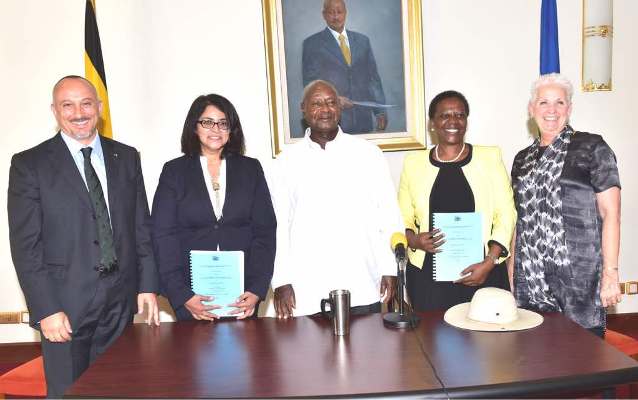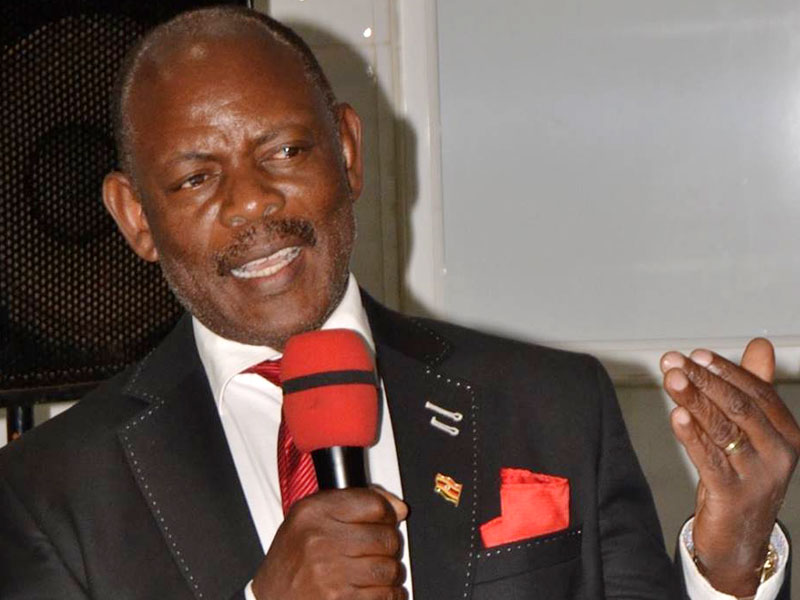By Kenneth Agutamba
The Twitter hash-tag #ICanConfirm, created in mockery ofjournalists’ frantic reporting on the arrest, early this week, of a top Ugandan military official, generated quite a discussion in various online editorial chatrooms; the question was, is it a reporter’s job to confirm?
To answer that, one could start by looking at the synonyms of the word ‘confirm’ which include terms like ‘authorize’ ‘approve’ ‘sanction’ and ‘settle.’
One side argued that in a situation where a reporter knows ‘true information’ about a development but they have no source to attribute the facts, then it would be right for that reporter to take matters in their hands and ‘confirm stuff.’
The counter argument, to which I subscribe, is that the reporter should always attribute what they know to a source whether on record or off record, by using professionally accepted terms like, ‘reliable sources’ or ‘a source that preferred anonymity because of…”
In fact, that counter argument is what is taught and encouraged in journalism schools around the world. Journalism is founded on two actors; a reporter and a source.
The reporter’s biggest asset is professional credibility that gives news consumers the confidence to trust in what the journalist is reporting. A reporter must be transparent to always declare how they know what they know or why they don’t know, to preserve their professional credibility.
What we had this week was a situation where the internet waseddyingwith rumours of an operation to arrest a top military official; reporters were trying to outcompete each other.
It is then that a well-known senior reporter tweeted, ‘I can confirm…’ key aspects of the operation but without attributing what he knew to any of the actors involved in the operation. But it turned out his reporting wasn’t accurate, henceforth inspiring the mocking hashtag.
‘Who says what’ matters a lot in journalism. Reporters are trained and are experts at gathering information about a development; while this makes them knowledgeable about a subject, it doesn’t make them experts or technicians to authoritatively confirm facts.
A reporter’s work is facilitated by several forms of sources including eye-witnesses, government officials, participants, experts, official documents, etc. And here is a typical scenario.
There’s a reporter on the scene of a fatal road accident where they can see people scattered everywhere, immobile and seemingly lifeless. Although they can report their observations on the scene, they don’t have the pathologist’s technical authority to confirm the number of the dead.
So, their typical news report would be;
“I am on the scene of this fatal road accident. An eye witness says the vehicle rammed into a road-side stump before over-turning several times, sending passengers flying through its windows. About ten people lay on ground, their bodies are seemingly lifeless. A police pathologist here confirms, they’re all dead. A traffic police officer blames the accident on over-speeding.”
When a reporter attributes what they know, to a credible source, they are protected from being accused of lying if a ‘fact’ turned out to be ‘false.’ But a journalist who confirms without attributing traps themselves into a defensive corner should his facts come under scrutiny.
Of course, as a dynamic profession, the reporting language changes depending on the reporter’s context. It is possible for a reporter to find themselves in the shoes of a witness, and it would be fair to report on a development as a witness. But still, you may not be able to confirm all aspects.
If a journalist is wandering about in the neighborhood and they happen to spotpolice activity outside the residence of a military officer, they’re in a witness journalism context where they can report what they’re observing but they can’t confirm the intent of the activity.
Whether it is an unusual deployment or regular police patrol, or an operation to arrest someone or not, these are aspects of the story that a journalist has no credibility to authoritatively report and whatever he learns, must be attributed to a credible source such as a commanding officer.
In this era of social media inspired fake news, space for credible journalism is stifled. But it is only through preserving individual and corporate media credibility that professional journalism can survive.
The hunger for online celebrity status shouldn’t sway journalists off the reporter’s rule-book that guide news-gathering operations.We should remain true to our cardinal values of truth and accuracy. While we cannot always guarantee ‘truth’ getting facts right is a must and when we cannot corroborate information we should admit so.
Journalists must strive to be independent voices by ensuring they don’t act, formally or informally, on behalf of special interests whether political, corporate or cultural; this is where journalism parts ways with PR and activism. A reporter should always declare their biases.
Being fair and impartial requires that stories should be balanced by giving all those involved, a chance to be heard, depending on context because almost all stories have at least two sides.
The humanity and accountability principal requires that as journalists, our work should not aim at harming others. And a sure sign of our humanity and professionalism is the ability to hold ourselves accountable by owning up to mistakes.
Mr. Agutamba is a Ugandan Journalist and PR Strategist based in Kigali.He is a Sunday Columnist with Rwanda’s only English Daily, The New Times. He is also a Chief Strategist at Impact Communication Strategies. Mr. Agutamba holds a Master’s in International Communications and Bachelor’s in Mass communication. Contact: kenagutamba@gmail.com





